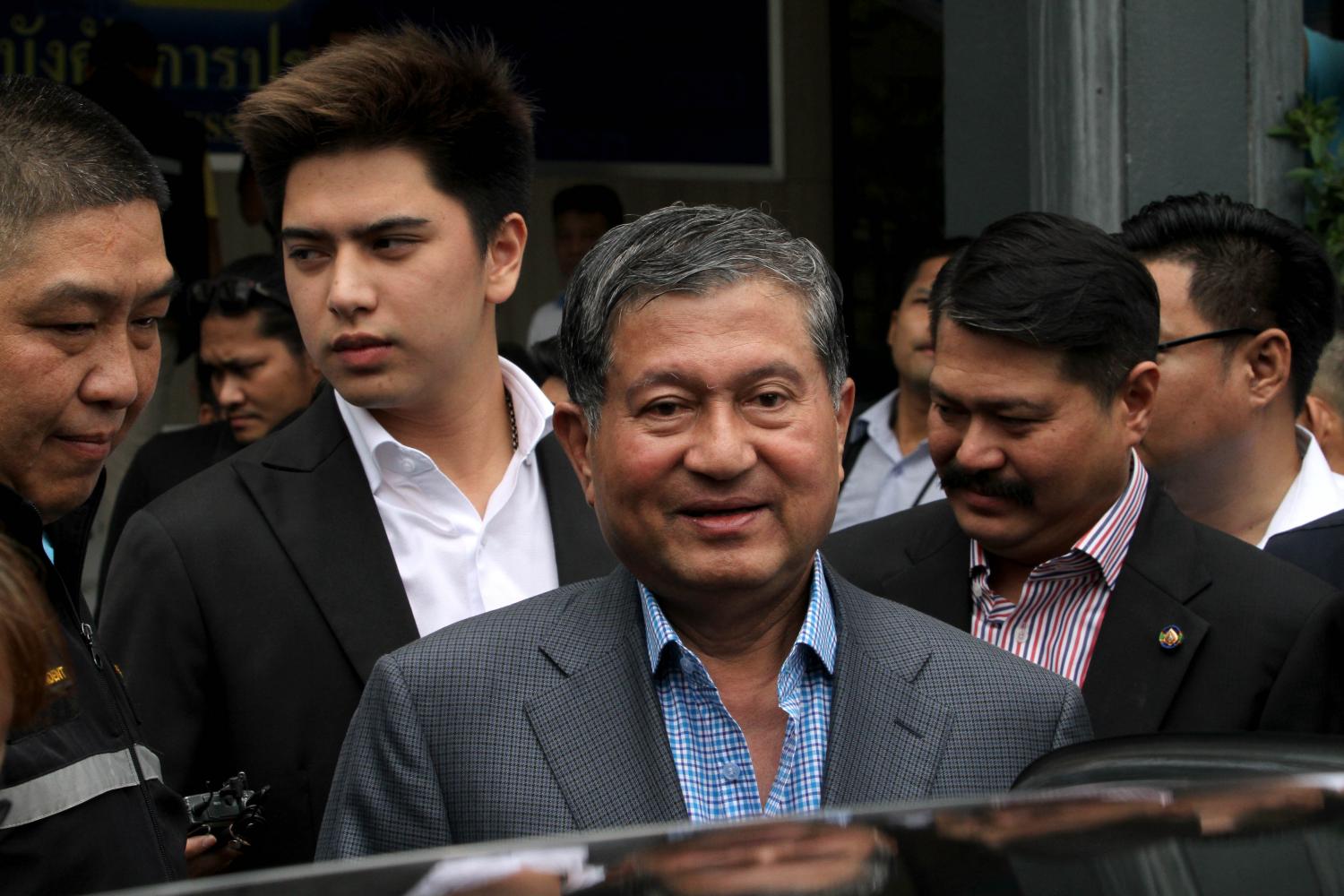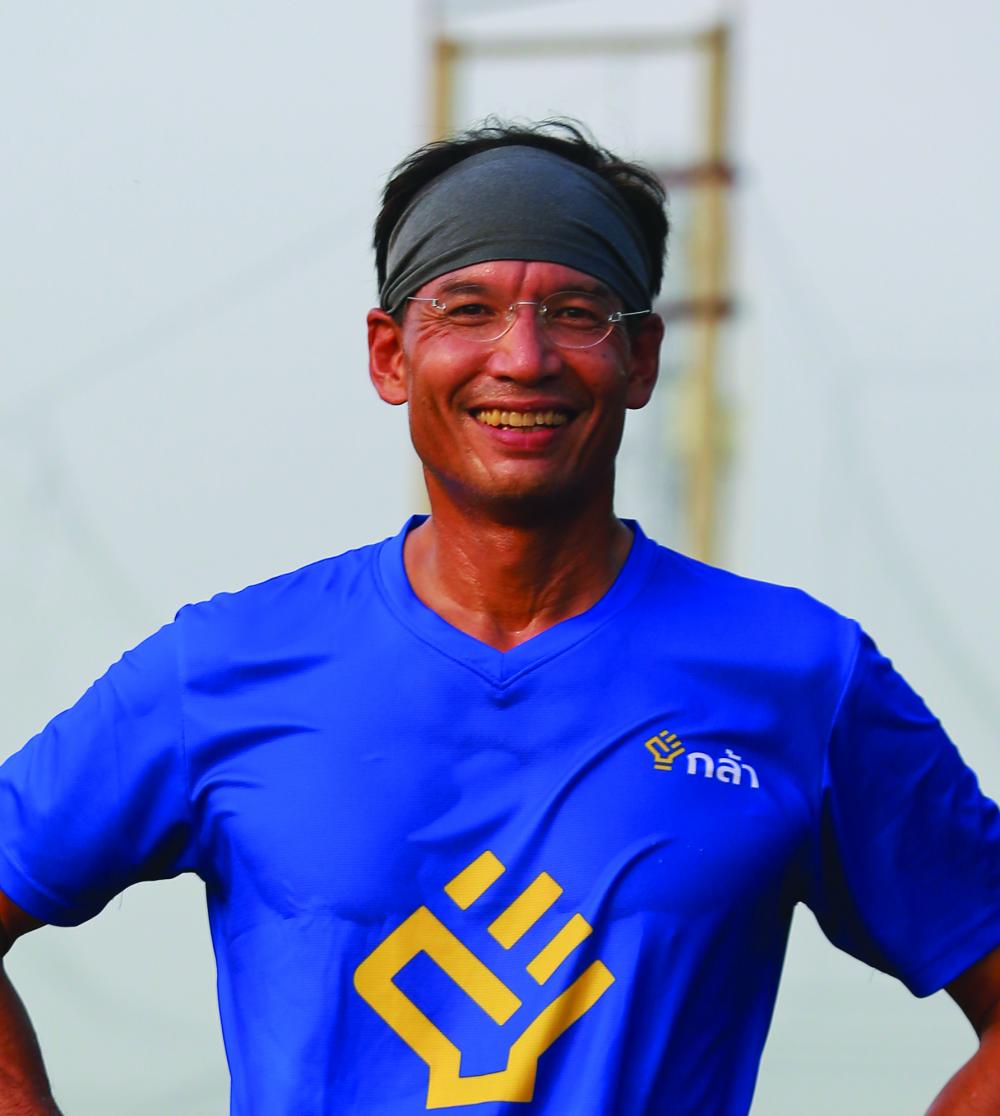
If Kla means courage, the party with this name may be a little too courageous for voicing its idea of legalising casinos, much to the disdain of the conservatives in the population who include the party's own supporters.
There are issues that instantly stoke controversies if and when they are brought up in the public domain and whether gambling should be made legal is one of them.
The question whether to legally recognise gambling activities have touched off fierce debates during the term of almost every government but the proposals have never come to fruition.
Last week, the issue was brought to the fore again after Kla made it known that it clearly stood on the proponents' side of the debate.
Critics said the party's position was met with dismay from some supporters who asked why Kla, of all parties, has chosen to pull off such a bold stunt at its own detriment.
Writing on his Facebook page, Kla leader Korn Chatikavanij declared that it would make a great deal of sense to put gambling "on the table", so to speak, rather than leave the illegal activity under it and let unscrupulous law enforcement officers continue to prey on it and thrive on the bribes collected from dens.
If gambling were on the right side of law, it would be properly regulated and taxed, generating massive revenue for the government, he said, adding it was a matter of bringing what has been hidden into the open and not only controlling it but also harnessing profit from it.
He said society, and even the police, have refused to acknowledge the existence of the problem for far too long. It was now time to address the issue realistically and pragmatically, which has served as the motto of the party.
The party noted people only need to cross the border to gamble. Thais are the mainstay of customers, accounting for 90% of gamblers in casinos in neighbouring countries. More than 40 billion baht flows out of Thailand to these casinos each year, according to Sanyakorn Singhaweratham, a Kla deputy spokesman.
Also, gambling has jeopardised public health. Some gamblers visiting underground dens, which "popped up" in many towns and districts, were blamed for unleashing clusters of Covid-19 infections which have spread to at least 60 provinces.
Mr Korn, a former finance minister, insisted there must be an answer the long-unsolved riddle of whether gambling should produce a new source of revenue for the country in the form of tax or if it should keep on fattening the wallets of mafia-style groups.
Mr Korn has also clarified that his party advocated establishment of commercial casinos and not the legalisation of dens which operate in converted shophouses, buildings or houses, many of which are "mobile" as they close after a few days and move to a new location to elude the police.
However, his clarification could not stave off the slew of criticism. An expert has pointed out that legal casinos must conduct business under exacting standards and tight supervision and regulation. Not everyone will be willing to or able afford to access such casinos and those left out will resort to illegal gambling at smaller but familiar dens.
Thanakorn Komkris, secretary of the Stop Gambling Foundation, said it would be even worse if both legal and illegal gambling places were to exist in a parallel universe. He added it would be naive for anyone to believe that illegal gambling dens will be eradicated overnight.
A political analyst said Kla's push for casinos to be given legal status sent a rather unequivocal message that the party was capturing voters who are liberal and open-minding about the matter.
If true, this might come at the expense of the party's sizeable support base which overlaps with that of the Democrat Party, which Mr Korn quit to form Kla in the first place. Since a good number of the Democrat Partry's supporters are believed to hold a conservative view on legalising gambling, it could be surmised that at least some of Kla's supporters will find the issue hard to swallow.
The analyst, however, said any loss of the party's traditional support could be compensated by its show of not toeing the conservative line or sounding heroic and playing to its base. However, that might pit it against the liberal politicians already exerting dominance over the younger generation of voters.

Korn: Playing Thai roulette?
The ghost of strategist past
The Pheu Thai Party's recent press conference on its preparations for the next election struck political observers as odd. But it did not take long for them to figure out what the fuss was about.
The briefing on the party's division of campaign work quickly turned to speculation about the party resorting to an election strategy known as taek bank pan that was triggered by the resignation late last year of former party chief strategist Khunying Sudarat Keyuraphan.
The concept of "breaking a 1,000-baht note into smaller denominations" involves the role of smaller parties serving as branches that support Pheu Thai in future elections.
In the 2019 general election, the main opposition Pheu Thai was accused of adopting a strategy to tip-toe around the election rules which enable small and medium-sized parties to gain more party-list MPs than big parties. However, the tactic did not play out in the way Pheu Thai had intended when one of its alleged proxies, the Thai Raksa Chart (TRC), was ordered dissolved by the Constitutional Court ahead of the polls.
The TRC was disbanded in March 2019 for nominating Princess Ubolratana, the elder sister of His Majesty the King, as its prime ministerial candidate.
Some political analysts predicted that Khunying Sudarat's exit was just a long-term Pheu Thai strategy to win more seats, come the next poll. The Bangkok-based veteran politician is forming a new party amid scepticism that it might just turn out to be another branch of Pheu Thai.
At the Wednesday news conference, Pheu Thai heavyweights led by party leader Sompong Amornvivat ruled out the use of a "denomination" strategy, saying the party had no intention of deploying political nominees or relying on offshoots to win seats in elections and a mandate to run the country.
Chalerm Ubumrung, chairman of the party's special affairs committee, even pointed out that the party hoped to form a single-party government, if possible, after the next general election. The outspoken politician also took the opportunity to criticise some former Pheu Thai members for causing confusion by continuing to pursue close ties with existing members.
It seemed their behaviour lent weight to the theory of a splinter party, according to observers.
"Those who turn their backs on Pheu Thai have nothing further to do with the party.
"However, if the [existing] party members want to conduct activities with them because they still retain ties, the party can't blame them -- as long as they don't break any rules.
"On the other hand, those [who chose to leave] should not get so involved with remaining Pheu Thai members. It is about political manners," Mr Chalerm said.
Even though Mr Chalerm did not name names, the political observers assumed that one of them is Khunying Sudarat who remains influential among Bangkok-based politicians in Pheu Thai. It is widely believed that some Pheu Thai MPs, who are her allies, will eventually defect from the main opposition party and join her in the new party she has registered.
Political observers were convinced Khunying Sudarat is the target of Mr Chalerm's criticism because they are known to not be on speaking terms.
There have been occasional reports about the pair engaging in political arm wrestling. Last year when Mr Chalerm was appointed head of the party's special operations committee to draw up the strategy for the censure debate, the move was seen to counter the influence of Khunying Sudarat.
In next month's no-confidence debate, its second in the current administration, it is alleged that MPs close to Khunying Sudarat are being blocked from taking part, although key Pheu Thai figures have denied this.
With Khunying Sudarat no longer in the party, the public could see more action from Mr Chalerm who promised to delegate poll campaign work to other Pheu Thai members in the next general election, instead of taking full control himself, if he is assigned to head the election campaign in Bangkok.
"Unlike the previous election campaign, I will work alongside others," he said.